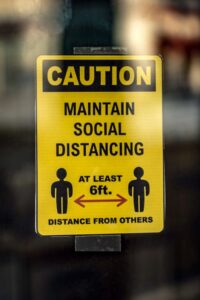I no longer sleep late on weekends. Truth be told, I now am exhausted by 8:30 and fall asleep before 9:00. I am usually awake by 4 AM and after lying in bed for a while I get up and stare at the stars.
It’s always the same thought. How did this happen? How did I end up like this, broken, defeated, hurt, frustrated, a mere shell of what I was prior to her entering my life? Now before you go and say, “Oh my god, not another rant about his ex,” allow me to dig a little deeper.
This is for those who seem to think if I just walked out or never married her or stood up for myself or would just stop whining, I’d see that nobody cares. People do not want to be around someone who talks about himself and what she did to him. Move on. It’s over. You are divorced. Go get a life.
It doesn’t work that way.
What makes a recovery from a narcissist different?
Everything good you’ve ever believed about human beings is contradicted. Every thought you’ve had about loyalty, experience, and truthfulness is denied. Every trope you’ve heard about marriage, love, and partnership is hammered into silence. Every idea you’ve had about human connection is trashed by the narcissist’s behavior.
Breakups and divorce are always painful but leaving and divorcing a narcissist is something else entirely and belies how recovery normally works. For example, research shows a correlation between an increased sense of self and growth after a relationship that was perceived as low in quality, and which limited the self. This means that recovery from a relationship with a narcissist ought to be a walk in the park.
Why isn’t it?
Because it’s missing the Casablanca effect.
Yes. I have given it a thoroughly unscientific name; you could also call it the “We’ll always have Paris” moment. Remember the scene in Casablanca when you (the audience) and Ingrid Bergman believe that she’ll be staying with Humphrey Bogart, but he tells her she has to get on the plane with her husband? She looks at him and asks, “What about us?” and he answers, “We’ll always have Paris.” (My mother, true to form, always had tears when she watched it). While their experience in Paris had been lost—when he could only feel the pain of having been abandoned—by understanding why she left him, that experience and the love felt had been regained.
In many concluded relationships, after the shouting has ended and what Daniel Gilbert has called our psychological immune system has kicked in (permitting us to remember all the not-so-wonderful things about our ex instead of crying our eyes out) there comes a moment of calm and detachment when we’re ready to start over. And with that comes the “We’ll always have Paris” moment when you actually remember some of the good times—and you’re okay with the memory. You can pick up a photograph of the two of you without wincing and maybe even smile.
That DOES NOT happen with a narcissist. (Notice the capitalized way I spelled does not? I thought about italics and underling, but I think capitals work).
There is no “We’ll always have Paris” moment because Paris—every promise he or she made to you, every moment you spent together, everything you ever believed about your relationship and connection—has been strafed or burned to the ground.
You’re not recovering from love lost or even the failure of a marriage, but from warfare. (Notice the italics? Proving another point).
“Shell-shocked” is a word many survivors of narcissistic relationships use, and it fits, as does the military term “scorched earth,” which I used in conversation with my matrimonial attorney to describe my ex-wife’s legal maneuvers. (Like what? She took me to court three times claiming no payment on child support. Each time I stopped off at the Clerk of the Court and for $2.00 I was handed a current account balance that I in turn handed to a bailiff who showed the judge that I was current. This from a woman who, despite a co-parenting agreement, refused to remove the block she placed on our kids’ phones).
The constant warnings
Forget love. I did not like her. I did not like her after our first phone call. (Yes, it was a blind date). She wanted to go out that night. After explaining that she was going home to see her parents the next morning she wanted to know when we were going out. I suggested she call me when she returns, and we could figure that out. She not only demanded to know the day, but she wanted to know where we would be going. It was clear she wanted to get married…not to me, she just wanted to get married. The phone number came from my mother who demanded I take her out upon her return and when I explained the date did not go well, I was told that I am too picky, and I must lower my standards. She then love bombed my parents, and with a father dying of cancer who wanted nothing more than to see his youngest child married before he cashed in, it became 3 against 1.
Once we returned from the honeymoon, the full court press was on. My parents wanted more grandchildren, and The Narc was not about to disappoint. She gave them a beautiful grandson who upon arrival saw his grandfather in a coma and pass away nine days later.
They say that something changes when you have a child of your own and “they” are correct. I could not leave this marriage for fear of going to work and not seeing my two sons upon my return. I loved driving them to school and coaching them in rec basketball for ten years (with two seasons per school year it was 20 seasons) and having dinner with them and playing ball and listening to how their days were and …
The Constant Fear
If The Narc saw me laughing, she knew she had to stop it. If I was talking to somebody, she would want to know why I had to talk to them instead of her. If I spoke with someone on the phone, she would wait long enough outside the room, determine with whom I was speaking and walk in the room so I would focus on her. Upon hanging up and asking what was so important, the answer was mindboggling. “I didn’t tell you to hang up. Don’t blame me.” She would pull me aside day and night to tell me that if I ever decided to get a divorce, I would never see the boys again. I never did understand why she acted the way she did. Why when things were going well, did she offer up such a threat? Why, before I was about to go to sleep would she turn on the light and say, “If you think you are going to stay in this marriage because of the boys you are so wrong. I hate you and I hate your family. This is a pathetic, loveless marriage. My family despises you. My father wants me to divorce you. My sister can’t stand you. Nobody knows why I am staying with you. But if you ever leave, you can be assured the boys will hear what a disgusting piece of shit you are. Your family and those so-called friends of yours are even more worthless than you. I am telling you now, you will NEVER see the boys. I will walk away with sole custody. I don’t know why I don’t throw you out now. You care about nobody but you. You are the most selfish piece of shit in the world! ”
I was just hoping she would turn the light out and go to sleep. If I said nothing her newest move would be to turn the television on with the volume up. I knew nothing of narcissism. I knew nothing of sleep deprivation, triangulation, love bombing, gaslighting, enablers, gray rock, hoovering, narcissistic word salad…
This narcissist made clear early in our relationship that she was in control. I had no say in anything and everything she told me she loved about me early on became everything she hated about me (My family, my friends, my job, my life) in a short period of time.
Not clear enough?
Let me be direct. The narcissist does/did not occupy her own soul, nor did she inhabit her own body. She is the servant of an apparition, of a reflection, of an Ego function.
So, why did the narcissist try to destroy me?
In order for the narcissist to feel like she could survive, she needed to protect her fragile ego at all costs. She believed that to do this, she needed to destroy me – even though she was the one who decided to exit the relationship. … She just wanted to get out of the relationship with everything I owned (old photos and mementos, my car, and the kids, I could add an etc. but once you add your kids to the list everything else become irrelevant) and move on with her life. But she would not move on before the smear campaign.
Allow me one other piece of information. She could have stuck a knife in me in the middle of the night while I was sleeping. She would look at me and say, “Oh, so now you think you’re a victim.”
Narcissists don’t feel much guilt because they think they are always right, and they don’t believe their behaviors really affect anyone else.
Why do narcissists think they’re always right?
The real reason narcissists must always be right is a rooting in their inflated sense of self. They don’t recognize any “higher powers” or authority. And they ardently resist subordinating themselves – to anyone or anything. They see themselves as “special” and superior. She always had to be smarter than me or my friends or my family. So, is it any surprise they all left me? It’s just too damn exhausting to be with someone who is always right.
And let me add this, can narcissists be loyal?
Narcissists require loyalty. That being said, the loyalty is only one way. Many narcissists demand loyalty from their partners, while hypocritically betraying the relationship themselves; sometimes by even cheating on their partners, with no remorse.
Recovery
Here are a few reasons someone is likely to have trouble recovering from a relationship with a narcissist, as well as a few solutions you can do to enable recovery:
- Nothing was what it seemed.
This is a biggie because what appeared to be about two people was only about one—the narcissist. Once you have absorbed this truism, you will find yourself revisiting what you thought was going on between the two of you and what really was. This is wounding enough, and it segues right into the next point…
- The misery of 20/20 hindsight.
The red flags that people always talk about—those signs that no intelligent person would ever miss but you did—spring up during the breakup, when everything you missed before or was hidden from view is suddenly in plain sight. One of the most dizzyingly disorienting experiences about uncovering layers of lies is that you end up questioning your judgment about everything, especially if you had a partner who covered her tracks by trying to convince you that you were ‘crazy’ or ‘paranoid.’
This is more devastating and painful than anything else, recognizing that I extended my hand and was led right down the garden path. Connecting the dots and seeing how I managed to collude with the narcissist’s efforts to control and ultimately bilk me makes me relive the emotional moments again and again, which doesn’t help to move on one bit. Truth be told, it takes you into the darkest of holes that lead to even darker thoughts, and you find yourself having to find reasons for daily existence.
One of the dangerous things that happens when you’re involved with a narcissist is how their ability to chip away at your self-esteem can lead you to self-doubt. People coming out of relationships with narcissists typically have a feeling of never being good enough. They experience crippling self-doubt because they have been told for so long that they are somehow wrong.
- You feel like a fool.
Those of us who are insecurely attached—alas, the very people least likely to recognize the narcissist to begin with—are also inclined to fall into the damaging trap of self-criticism, ascribing something bad in your life to immutable and permanent deficiencies in your character, instead of seeing them as a series of mistakes or missteps that anyone could have made. It’s easy to fall into self-criticism in the aftermath of a run-in with a narcissist. You may think, “Only someone as dumb and naïve as I am could have been taken in by her,” or “There’s something really wrong or missing in me that I didn’t see who she was.”
Yeah. This is the one that keeps me up. This is the one shooting through me at 4 AM when I am star gazing. This kind of thinking is a serious impediment to emotional recovery.
It’s one thing to take responsibility for mistakes you made—deciding to mollify your partner, being hesitant to leave when you knew you needed to, handing out second, third, and fiftieth chances—and another to beat yourself up for connecting with her in the first place. Men who self-criticize are more likely to ruminate and get caught in a cycle of repetitive thoughts, which also get in the way of recovery.
I have done enough reading and listening and been through ample suicidal thoughts. Here is what I can say. Self-blame is shockingly common in people who’ve left a pathological narcissist. If you tell yourself you’re the problem, all you must do is change and you’re finally free of the pain. This is a handy bit of self-deception when your partner has no intention of changing, but one that completely erodes your self-esteem (And then find out about her smear campaign and in my case let’s take it further. I find out about my brother and my sister and their smear campaign against me. In my brother’s case it was like a magic charm fell into his pocket. He used everything The Narc did against me and in addition to telling my mother’s friends and relatives that I not only smeared the family name, but I was the family’s problem well before I married her. His last loving act was the day he changed my mother’s will and had me removed. Mom was suffering from dementia and no attorney would make the change he wanted, so he lied, and he lied, and he lied until finding an attorney who made the change of removing me and only required her to sign the document when she had a moment. My sister dropped it off and poof. All done. (But Steve, that is a big accusation. How can you be so sure? Sometimes we just know. My mother and father made clear to me years ago when they were debating about tossing my brother from their will (my old man wasn’t stupid) that the only way they would do it would be to take his share and divide it by the number of children he had. “We will never hurt out our grandchildren.” Their moral compass was intact. My brother has no such compass. He shut out my two sons just to take more for himself).
- You feel utterly powerless.
A narcissist self-regulates by feeling powerful and in control. To be able to do that, she needs someone to push around, which is why it’s impossible to stop the narcissistic train. When you’re robbed of a sense of agency in one important arena—when you’re in a defensive crouch and unable to be proactive—it’s very hard to stay emotionally balanced and in control in other parts of your life, except in superficial ways. Yes, you’re getting out of bed, doing your work, and paying your bills, but much of the time you’re on autopilot. That gets in the way of recovery—as do financial anxiety and fear, and a host of other unpleasant emotions.
You must take care of yourself like you are recovering from a really bad illness. Surround yourself with positive things. Try very hard to not let your anger resentment, and hurt destroy you. It will eat away at your insides and turn you into one big ball of rage. When you experience this depth of betrayal from someone you thought you could trust with your life it cuts you to your very soul. I made a conscious choice to get through it by sheer willpower. I decided I was going to rise above the ashes and come out on the other end, stronger, and with my dignity.
There is help.
You can use specific strategies to try to get off the emotional rollercoaster and to make sure the experience doesn’t shape you in ways that set you back, without putting on rose-color glasses or denying the pain. I’m not a believer in the saying, “What doesn’t kill you makes you stronger.” The truth? What doesn’t kill you really hurts you.
The individual with narcissism will either vanish completely or will say and do certain cruel and emotionally abusive things designed to injure the psyche of the target. He or she seeks to cause harm and straddles the line of sociopathy. Ultimately, the target has no way of understanding what happened and is left with confusion, shock, disbelief, and betrayal.
People who tend toward narcissism always needs newer and fresher sources of supply, they have a habit of devaluing and discarding targets. They may be incapable of true love, empathy, reciprocity, kindness, and compassion. In essence, they may have broken psyches, much like a broken appliance.
Luckily, for those whose lives have been touched (or slightly marred), there is a path to

healing. This process takes place through no contact, a compassionate and understanding psychotherapist, and/or a support forum (whether online or in person). Those who have been targets heal and move on to love others in healthy, mature relationships.
Life with a narcissist can be extremely stressful, leading to depression or anxiety. It can also make you physically sick. You may feel it in the pit of your stomach. This isn’t surprising, as stress and dismay are often coupled with a gut disturbance.
- Stop blaming yourself
Do any of these statements sound familiar? “You’re the crazy one. You are overreacting. If you wouldn’t have done that, I wouldn’t have had to do what I did. Don’t blame me. You made this happen and it is all your fault.”
These things are not true and the actual term for this is one of those terms I mentioned, “gaslighting,” which is often the main objective for people who display narcissistic traits.
Those with Narcissistic Personality Disorder can be very good at making you feel like their behavior is your fault. This person is less likely to take responsibility for their behavior, feelings, and thoughts. They can be manipulative and often seek control of situations so that they do not expose their insecurities, which is part of “Narcissistic Injury.”
- Don’t “over-sympathize” for them
Yes, something probably happened to them in their lifetime that manifested into narcissism, but that is not enough to warrant your sympathy. After all, personality disorders are life-long patterns, and they did not become that way overnight.
It is much easier for them to blame someone else, which is you. One of the worst things you can do is blame yourself. You did not cause them to act that way, so stop blaming yourself.
Try something completely different.
- Find your truth
Individuals with narcissistic traits are keen on distorting reality. It is easy to fall into a pattern of thinking when you believe lies, thought you were going crazy or watched things fall apart around you. You can find your truth by watching how other people around you are living.
The truth is that no relationship is perfect, but there are certainly some that are healthier than others. Think of someone you know who has a healthy relationship. Look at their reality and compare it to the toxic environment you were in.
Another way to find the truth is to ask your loved ones for help.
- Recognize and validate your emotion
Stop saying, “I should have known.” Oftentimes as humans, we forget that our feelings matter. Whatever you are feeling is real and never wrong. Remember that it is “ok” to feel the way you do.
You feel the way you feel, and you are always doing the best you can with the skills you have.
- Take your life back

While you were in the relationship, your thoughts, feelings, and behaviors were likely focused on “not making the person mad.” You get a chance to take back your own feelings, thoughts, and emotions.
Take your life anywhere you want it to go. Be the best version of yourself.
- Love yourself
Find what you love about yourself and be self-assured. Don’t allow your mind to dwell on their criticisms. Avoid wasting time and energy on negative thoughts.
You are more special than you realize. You are not the bad things that person said you are. You are stronger than you realize. Meet people, find new hobbies, and feel confident in yourself.


